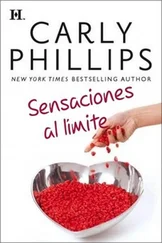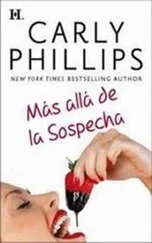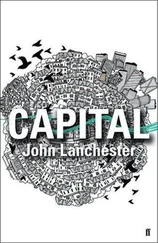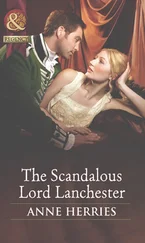A few people are already on the lake, splashing about in hired boats. The men in them are all trying not to look as bad at rowing as they are.
When he was training as an accountant Mr Phillips had fallen in love with the double entry book system. It seemed suddenly a whole new language in which to describe the world; or rather it suddenly seemed as if the world was describable in a new and better way. Things became more clear, more starkly lit. That was soothing. For a few weeks he had done an impromptu double entry account for everything from his personal finances to his parent’s house and belongings to Crystal Palace Football Club (where players were automatically listed under assets, a debatable point to fans but an ineluctable decision in the crystalline logic of the accountant). Now, walking in Battersea Park Mr Phillips feels the long suppressed need to draw up a tranquillizing double entry. The thing to imagine was that the park suddenly ceased to function as a going concern, and all its assets and liabilities were frozen in the moment of disposal.
ASSETS LIABILITIES Fees from people willing to pay to shoot geese Cost of geese damage Upkeep of pavements Park benches Subventions from Wandsworth Council Rent from park-keeper’s cottage Salaries of park keepers, park police Fees for tennis courts, football pitches, etc. Insurance for trips and falls Money from recycled bottles Bottle bank recycling gear upkeep Car park fees Car park upkeep Paint, etc., in storage Peacock upkeep, feed, etc. Tulips, etc., to sell Fertilizer costs Feed, etc., in storage Storage upkeep, sheds, etc. Golden Buddha Upkeep of Buddha, gilt paint, etc. Fees from special events Cost of setting them up Film fees Upkeep of cricket pitches, bowling lawns, etc. Boat fees Pollution monitoring in pond Statues, monuments, sculptures Upkeep thereof
There were bound to be lots of other things he hadn’t thought of. It would cost a fair old bit, running a park.
Mr Phillips walks past the pond and along the road that curves around the park. Every few seconds a cyclist, rollerblader or jogger floats, cruises or puffs by him. The very sight of this is tiring. Mr Phillips in general doesn’t mind exertion all that much, but he dislikes the idea of it. Any kind of effort weighs on his spirits in advance, he can feel it coming. It’s like the fatigue he experiences at the beginning of a day that he knows in advance will be long and boring, so that it’s as if the whole eight or ten or twenty hours of ennui are crushed and compacted into every single moment. The anticipation of a gruelling day always makes him feel like Superman confronted by a villain wielding a lump of Kryptonite.
In front of him a small boy is whacking the fence beside the tennis court with a stick while his mother trails along behind, also carrying a stick, which she is running more slowly and meditatively over the bars of the same fence, as if playing a musical instrument visible only to her. Like many young parents she wears the glazed and disconnected look of a combat soldier.
Mr Phillips stops beside the tennis court to rest for a moment. There is nowhere to sit down except two small benches immediately beside the courts. He feels too self-conscious to go that close so he puts down his briefcase, takes off his jacket and stands watching. As soon as he stops walking he becomes conscious of a light breeze.
The three courts are occupied by, from left to right, a father and son combination of about forty and ten years old, the father hitting patronizingly gentle forehands to his concentrating offspring; two girls in their late teens in short white dresses and long dark-blue socks, playing competitively and seriously; and a middle aged mixed doubles outfit, well matched and cunning but slightly heavy on their feet. Mr Phillips concentrates his attention on the girls while pretending to pay attention to the other two pairs — in other words he holds his head pointing in one direction or the other while secretly keeping his eyes on the middle. One girl’s dress rides up when she serves to show a glimpse of legs all the way up to her bum. Her legs and arms are the colour of Weetabix. She’s blonde and has a ponytail which flops about her head and shoulders as she moves. They both look as if tennis is a big thing for them. Mr Phillips wonders if they change ends after two games and if so whether he has the nerve to stay around long enough to get a better look at the darker girl.
‘It’s Wimbledon that brings them out,’ says a man beside Mr Phillips. The newcomer, a short, fair businessman type with strange grey eyes, is standing with his hands in the pockets of a green suit. On second glance he doesn’t look as much like a businessman as something more louche and selfish.
‘I’m sorry?’ says Mr Phillips.
‘Wimbledon — you can’t get on the courts for weeks afterwards. It’s the end of July now, we’ll have at least another fortnight before the effect wears off.’
The man falls silent again and stands beside Mr Phillips watching the tennis. His presence makes Mr Phillips feel more rather than less self-conscious and he begins regretfully to contemplate walking away from the tennis courts. The darker-haired girl, who has breasts that are of a nice human scale, not at all like the girls in the magazines, is changing ends and walking towards them. She looks up at them for a moment, a glance from under her eyelashes in the manner copyrighted by Princess Diana, and Mr Phillips feels his penis twitch.
‘The thing I like most about Wimbledon,’ says the man, ‘is watching the girl players fish the balls out from their knickers when they’re about to serve. Isn’t that your favourite thing too?’
‘What?’ says Mr Phillips.
‘I said, standards in the women’s game and the simultaneous raising of the velocity of the men’s game, especially as played on grass, because of racket technology, have meant that the women’s game, on grass at least, is now more interesting to watch than the men’s, don’t you find?’
‘No, you didn’t,’ says Mr Phillips. ‘You said something about the balls being all lovely and warm when they came out of the players’ knickers.’
The man looks expressionlessly at him for a moment and then laughs a rich relaxed laugh that smells faintly of last night’s alcohol. He seems to flop or slump slightly as he reaches into an inside pocket and takes out a glinting object that for a hallucinatory split second Mr Phillips thinks is a gun but is in fact a silver case carrying skinny cigars. The man offers the case, opened like a book, to Mr Phillips, who declines. He then takes a cigar for himself and lights it with a metal Zippo lighter that leaves behind it a whiff of lighter fluid.
‘Shocking habit,’ says the man. ‘Unless that’s a contradiction in terms. These are Cuban, rolled on the thighs of virgins and all that. Ideally they should be roughly three times this size. The bigger ones have more flavour. Like women, I hear you think.’
‘I was thinking nothing of the sort,’ says Mr Phillips.
‘Aha. More on the little girls side of things, are we? You must be, what, early fifties? The younger the chicken the sweeter the pickin’, the older the fiddle the sweeter the tune, am I right? Slowing down as you drive past bus stops, that sort of thing?’
‘Mind your own business,’ says Mr Phillips, pushing back from the railings and beginning to walk off towards the river. The man picks up his, Mr Phillips’s, briefcase and begins to come after him.
‘Steady on, no offence I hope,’ he says, still friendly. ‘I am minding my business. In fact you could even say that I am working. Hang on a minute, you’ve forgotten your case.’
‘Thank you,’ says Mr Phillips, stopping to take the proffered bag. The man pretends to snatch it back and then lets him take it.
Читать дальше
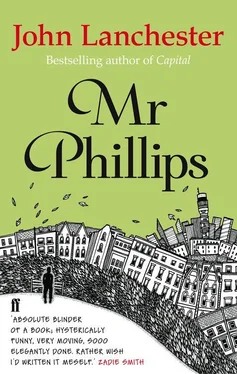



![Unknown - [Carly Phillips] The Bachelor (The Chandler Brothe(Bookos.org) (1)](/books/174132/unknown-carly-phillips-the-bachelor-the-chandle-thumb.webp)
